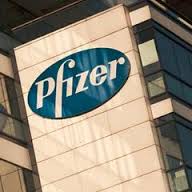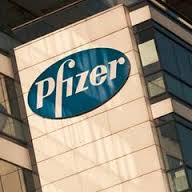
For millions who suffer from eczema, a common skin condition which causes infection-prone rashes that can feel like having poison ivy 24 hours a day, Pfizer Inc's purchase of Anacor Pharmaceuticals Inc heralds an approaching wave of potentially safer and more effective treatments.
Pfizer's $5.2 billion deal positions it to become a market leader among a group of more than two dozen drugmakers who are working on novel medicines to treat the condition affecting about 20 million Americans, also known as atopic dermatitis.
The first of the new treatments to be reviewed by U.S. regulators is Anacor's steroid-free topical ointment crisaborole. It is expected that an injectable therapy called dupilumab from Regeneron Pharmaceuticals Inc will be submitted for approval later this year.
"Until a few years ago, I don't think we had any message of hope for eczema patients who have tried everything," said Gil Yosipovitch, chairman of dermatology at Temple University School of Medicine who is a paid consultant for both companies.
“Now we do,” Yosipovitch says.
Without side effects accompanying current treatments, the two medicines greatly reduced eczema symptoms in late-stage trials. They could face no significant competition for years and could eventually see combined annual global sales of over $9 billion.
For the 60 percent to 80 percent of patients with mild and moderate eczema on localized areas of the body, Yosipovitch said Anacor’s crisaborole could be a valuable option. Dupilumab would be used for patients with more severe disease, he said.
Comprising mostly of topical steroids than can cause skin atrophy and increase risk of glaucoma and cataracts, the global eczema drug market is currently worth about $4 billion in sales. Oral drugs that suppress the immune system, such as cyclosporine are also prescribed by doctors. However since they have the potential to cause infections, shingles and cancer, they are not approved for eczema.
However, patient’s access to the new treatment can be limited by the cost. At a time when U.S. health insurers are resisting rising drug prices, Regeneron's injectable dupilumab could cost $25,000 a year, similar to psoriasis drugs. With Anacor's drug costing more than $1,200 a year and having peak annual sales of up to $3 billion, analysts say it could eventually capture annual sales of $6 billion.
"Payers know this will be a big market and will put up a lot of barriers and restrictions," said Yatin Suneja, an analyst with Suntrust Robinson Humphrey.
Express Scripts Inc last month said it would scrutinize new eczema treatments and their expected prices.
Crisaborole cleared or almost cleared treated areas of skin in half of patients with mild to moderate disease, with mild side effects in large clinical trials that included children and adults.
"We badly need a nonsteroidal topical that can get around serious steroid concerns and this drug showed no skin atrophy or other significant side effects," said Dr. Lawrence Eichenfield of the University of California San Diego and lead author of American Academy of Dermatology eczema treatment guidelines.
Dupilumab, which blocks two proteins, IL-4 and IL-13, believed to cause eczema and allergic conditions like asthma, would be put up for approval by Regeneron and Sanofi this year for adults with moderate to severe eczema.
(Source:www.reuters.com)
Pfizer's $5.2 billion deal positions it to become a market leader among a group of more than two dozen drugmakers who are working on novel medicines to treat the condition affecting about 20 million Americans, also known as atopic dermatitis.
The first of the new treatments to be reviewed by U.S. regulators is Anacor's steroid-free topical ointment crisaborole. It is expected that an injectable therapy called dupilumab from Regeneron Pharmaceuticals Inc will be submitted for approval later this year.
"Until a few years ago, I don't think we had any message of hope for eczema patients who have tried everything," said Gil Yosipovitch, chairman of dermatology at Temple University School of Medicine who is a paid consultant for both companies.
“Now we do,” Yosipovitch says.
Without side effects accompanying current treatments, the two medicines greatly reduced eczema symptoms in late-stage trials. They could face no significant competition for years and could eventually see combined annual global sales of over $9 billion.
For the 60 percent to 80 percent of patients with mild and moderate eczema on localized areas of the body, Yosipovitch said Anacor’s crisaborole could be a valuable option. Dupilumab would be used for patients with more severe disease, he said.
Comprising mostly of topical steroids than can cause skin atrophy and increase risk of glaucoma and cataracts, the global eczema drug market is currently worth about $4 billion in sales. Oral drugs that suppress the immune system, such as cyclosporine are also prescribed by doctors. However since they have the potential to cause infections, shingles and cancer, they are not approved for eczema.
However, patient’s access to the new treatment can be limited by the cost. At a time when U.S. health insurers are resisting rising drug prices, Regeneron's injectable dupilumab could cost $25,000 a year, similar to psoriasis drugs. With Anacor's drug costing more than $1,200 a year and having peak annual sales of up to $3 billion, analysts say it could eventually capture annual sales of $6 billion.
"Payers know this will be a big market and will put up a lot of barriers and restrictions," said Yatin Suneja, an analyst with Suntrust Robinson Humphrey.
Express Scripts Inc last month said it would scrutinize new eczema treatments and their expected prices.
Crisaborole cleared or almost cleared treated areas of skin in half of patients with mild to moderate disease, with mild side effects in large clinical trials that included children and adults.
"We badly need a nonsteroidal topical that can get around serious steroid concerns and this drug showed no skin atrophy or other significant side effects," said Dr. Lawrence Eichenfield of the University of California San Diego and lead author of American Academy of Dermatology eczema treatment guidelines.
Dupilumab, which blocks two proteins, IL-4 and IL-13, believed to cause eczema and allergic conditions like asthma, would be put up for approval by Regeneron and Sanofi this year for adults with moderate to severe eczema.
(Source:www.reuters.com)





